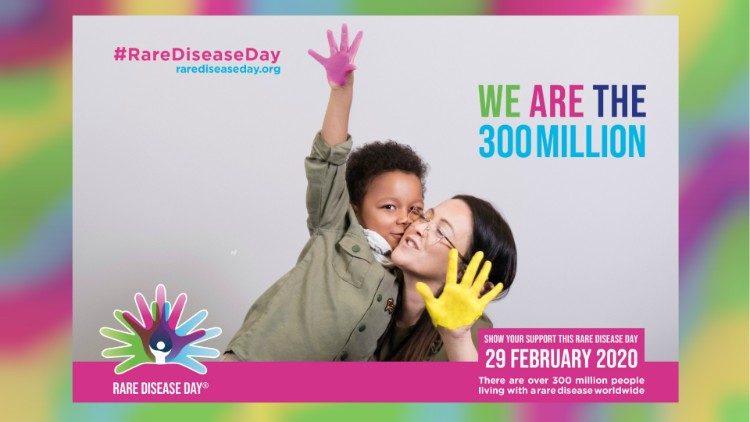The Vatican is urging the international community to implement the Catholic social principles of subsidiarity and solidarity in healthcare policies in order to provide specific support and care for patients with rare diseases and their families, and make them feel part of society.
Cardinal Peter Turkson, the Prefect of the Vatican Dicastery for Promoting Integral Human Development, made the call on Saturday in a message for Rare Disease Day, that is observed on the last day of February.
European Organisation for Rare Diseases (EURORDIS), a non-governmental organization, established the annual observance in 2008 to raise awareness for unknown or overlooked illnesses.
According to the NGO, there are over 300 million people in the world suffering from over 6,000 identified rare diseases.
Pope Francis
Pope Francis also called for support for persons with rare diseases. In a post on his @Pontifex Twitter account on Saturday, he wrote: “#RareDiseaseDay offers us the opportunity to together care for our brothers and sisters who are ill, to integrate research, medical care, and social assistance so that they might enjoy equal opportunities and lead a full life.”
Rare diseases in poor countries
In his message, Cardinal Turkson noted that often people with rare diseases and their families live in stigma, loneliness and a sense of helplessness, often exacerbated by difficulties in getting specific treatment and appropriate care. This situation is even more serious in all those countries where the health system is more vulnerable.
Stressing that the fundamental right to health and care is a question of justice, the cardinal said that the unequal distribution of economic resources, especially in low-income countries, does not guarantee the health justice that protects the dignity and health of every person, especially the neediest and poorest.
The pharmaceutical industry
For this reason, Cardinal Turkson said, the scientific knowledge and research of the pharmaceutical industries, even if they adhere to their own laws, such as the protection of intellectual property and fair profit as a support for innovation, must find appropriate agreements that grant the right to diagnosis and access to essential therapies, especially in the case of rare diseases.
Subsidiarity and solidarity
“The principles of subsidiarity and solidarity,” Cardinal Turkson said, “must inspire the international community as well as health policies to ensure that efficient health systems, equitable access to diagnosis and treatment and specific support and care for patients and their families are guaranteed for all, particularly the most vulnerable populations.”
In the Catholic Church’s social teaching the principle of subsidiarity stipulates that human affairs and their decisions be handled at the level of the affected persons, rather than by a central authority.
Inclusiveness
Noting that the impact of rare diseases on the daily life of families is disruptive from a psychological, emotional, physical and economic point of view, Cardinal Turkson urged that health and social care include all aspects of family life and involve the various actors in a country in order to meet the needs of persons with rare diseases. He particularly urged for “support, solicitude, attention … in short, love”.
He said it would be ideal that alongside family members, health, social and pastoral workers and volunteers, work in a spirit of fraternity, to take care of persons with rare diseases, integrating medical care with social activities and commitments that make them feel a dynamic part of society.


